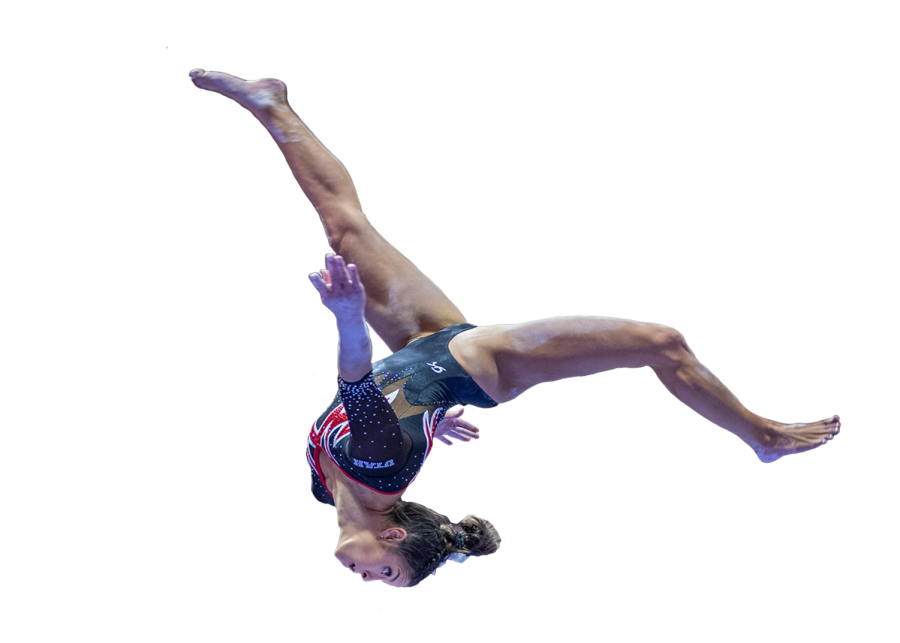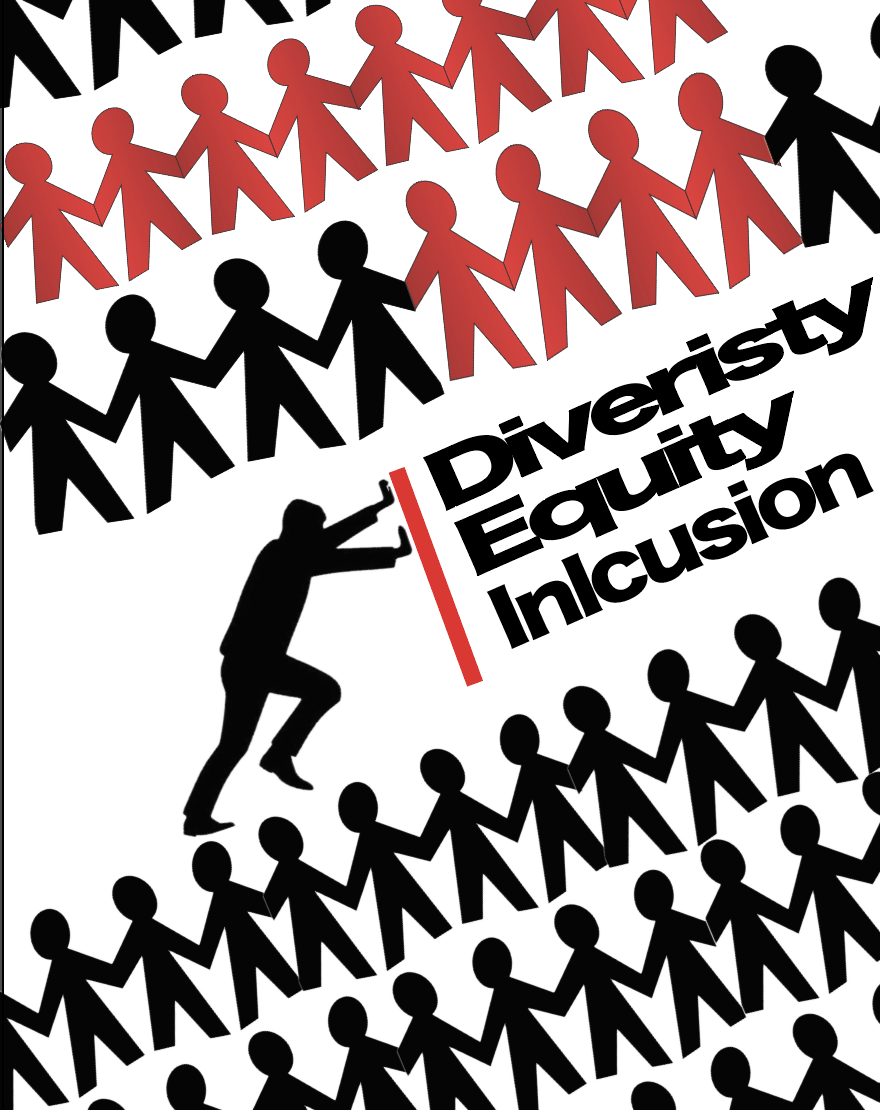How Utah Athletics Approaches the Ever Changing Landscape of Mental Health
(Design by Emily Christensen | The Daily Utah Chronicle)
September 30, 2021
Something within the landscape of college athletics has shifted over the past ten years, something seismic. Something that can change the performance of an athlete, prevent injuries and even save lives. A new variable has entered college sports and in this case, x equals mental health.
The University of Utah athletics department now provides top of the line athletic counselors and sports psychology professionals to every athlete that attends the university.
Utah is not behind the times either — in fact, it’s quite the opposite: they boast one of the biggest support staffs in the Pac-12 with four full-time counselors and two interns.
Where was this 10 years ago you might ask? It didn’t exist. The entirety of college athletics has had to adapt to the rapidly changing social norms around mental health issues.
Utah Football head coach Kyle Whittingham spoke on the changing times at his Pac-12 media day availability.
“It’s become an increasingly — a bigger part year to year. When I played, that wasn’t even a topic. I mean, it didn’t exist. When I got into coaching, it didn’t exist. The last five, six, seven years it’s started to come to the forefront,” said Whittingham.
He continued saying that he believes that mental health issues coming to the forefront of college athletics has helped everybody within the sphere.
“I know it’s benefited a bunch of our players … again, it’s something that we continually try to educate them that, hey, this is nothing to be ashamed of. It’s not a sign of being weak or not tough or any of that stuff. It’s reality. Let us know when you’re hurting and when you need some help and we’ll make sure we get it for you,” said Whittingham.
Let’s take a step back here. One of the top power five head football coaches in the nation is saying this. A coach speaking on issues regarding mental health ten years ago would have been seen as groundbreaking, but today we’re conditioned to expect that answer.
That means it isn’t just talking. Real action has been taken and you can see that in the way coaches handle mental health concerns with players.
Utah star linebacker Devin Lloyd echoed his coach’s thoughts on the changing mental health landscape within the football community in particular.
“It should be a top priority and should be spoken about more and encouraged more to have people speak out when they are going through a rough time. There should be more positivity associated with people searching for help as opposed to negativity,” said Lloyd.
The type of negativity Lloyd referenced in his comment is becoming harder and harder to find. Athletes and the general populous are starting to talk about and view mental health differently.
Look at women’s head basketball coach Lynne Roberts, who, according to star Brynna Maxwell, let her entire team go home for the offseason after an especially grueling 2020 COVID-19 regular season.
“Giving us that break, our coach Roberts let all of us go home after the season from literally March until June, and that helped so much — we are all back and happier and healthier now and ready to go,” Maxwell explained.
Maxwell has been at the forefront of athletes speaking out about mental concerns during 2020. After losing to Washington State in the Pac-12 tournament, Maxwell posed a poignant question to the media, asking if playing the season last year was even worth it.
Maxwell is a bit reluctant about her outspokenness though. These are new waters, according to her. She is balancing a fine line between being an advocate and not speaking for other’s life experiences, which is a difficult line to toe for a college sophomore who doubles as an emerging Pac-12 basketball star.
“It’s going to be hard to talk to people about mental wellness, but it helps so much. You’re going to think that people might think you’re weak or not mentally tough but you’re not and within the scope of college athletics, we are changing the stigma around it. It’s still tough for a lot of people including myself to admit that they are struggling, but to be able to share that with someone else, to have that accountability partner, helps tremendously,” said Maxwell.
Luckily for Maxwell, role models for mental health advocates in sports are fast emerging. Look no further than the French Open and the Olympics. Naomi Osaka and Simone Biles, two of the biggest athletes on the planet withdrew from their respective events due to mental health concerns.
Utah Athletics counselor Sonia Johnson points to these moments as key shifts in the way people have talked about mental health and athletes over just the last year alone.
“I think a good example of how things have changed is just the Olympics this year. I think, honestly, dating back to watching the track and field trials and having a lot of the U.S. trials, and having seen a lot of athletes be so open talking about their mental health and how COVID was really hard for them, because they had to train in isolation. A lot of them were alone — they were having to make money in ways that they hadn’t before. [It] shows that, just as a country, we’re just more accepting of hearing about mental health and the struggles that athletes go through,” said Johnson.
The response both Osaka and Biles received was largely positive. Especially on social media, the way the general public has started viewing mental health issues specifically among athletes has taken on a different tone. There is no such thing as insinuating an athlete is “weak” for dealing with mental health issues anymore without receiving massive backlash. That sort of thinking is so ancient at this point it would seem it belongs in the 1950s.
Part of this shift is due to the fact that the mental wellness aspect of athletics is now so integrally attached with the physical wellbeing as well.
Johnson spoke about how Biles referenced getting “the twisties” during her early performances at the 2021 Tokyo Olympics.
“You’re doing floor and you get lost in the air because you’re not focused. And for her it was because her mental health was suffering and she was really anxious, and so she was unable to physically perform and I think that spreads a part to all sports,” Johnson said.
As mental health has come to the forefront of the conversation in college athletics, Utah has done its part to stay on the cutting edge.
Athletes can see therapists and counselors through the athletic department to deal with typical mental health issues such as depression and anxiety and counselors also provide performance coaching.
What is performance coaching exactly? Johnson defines it as mental coaching to help athletes stay focused and composed within high-stress moments. She says one of the ways this is done is through finding mantras and positive self-talk.
“A lot of it is finding words, mantras, things that … are important to them, and that are powerful enough to kind of refocus them back to the task at hand and not these racing negative thoughts,” Johnson explained.
Johnson provides the specific example of a long-distance runner. The runner starts a race and it’s going relatively well but toward the end they start to fall behind. Suddenly negative self talk comes into play.
The runner might think, “I can’t do this, I am out of shape, what if I don’t win?” Good mental performance coaching can save that runner in that moment of self-doubt. If they are prepared with positive self-talk to finish the race strong it can provide their body that last bolt of energy it needs to get across the finish line.
Mental health in sports isn’t just about making sure athletes are okay, it’s about making sure athletes are in a mindset that will help carry their performance to new heights. It’s about giving student-athletes another edge.
That isn’t all it’s about, but it is an aspect that athletics departments across the nation have stumbled onto and can now use to make their athletes better. In the end, that benefits everyone.
“When your mental health is a affected, it’s really hard to keep it off of the court or off the field, out of the competition arena. And that can affect your ability to focus on the task at hand, which in turn can lead to injuries. You’re not really paying attention, you maybe are mentally drained and tired that your body can’t really keep up. So I think it goes, mental health and physical health go hand in hand,” said Johnson.
Mental health has come to the forefront of our society. It has proliferated its way into sports and so the athletics community has had to adjust accordingly. In doing so they may have found another edge. Keeping the mind as sharp as the athletic ability could unlock new potential for athletes.













